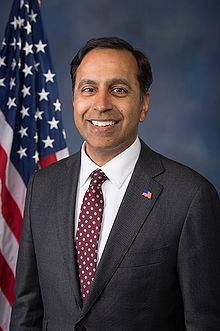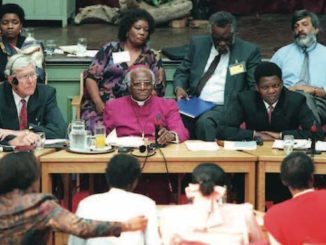
SCHAUMBURG, IL (TIP): This week, Congressman Raja Krishnamoorthi (IL-08) joined more than 150 Members of Congress as a cosponsor of the Justice in Policing Act of 2020. The bill is led by Congressional Black Caucus Chair Karen Bass, Senator Cory A. Booker, Senator Kamala D. Harris, and House Judiciary Chair Jerrold Nadler. Sponsors described the bill as the first-ever bold, comprehensive approach to hold police accountable, change the culture of law enforcement and build trust between law enforcement and our communities.
“As our nation continues to battle its legacy of systemic racism, this legislation will help to ensure that police officers are equipped with the resources they need to appropriately and effectively respond to the challenges they face on the job while sending a clear message that there is no place for brutality or misconduct in law enforcement,” said Congressman Raja Krishnamoorthi. “We need to make equal justice under the law not simply a principle, but also a reality for all Americans, regardless of their background, and this legislation is a crucial step forward in that effort.”
The Justice in Policing Act of 2020:
- Prohibits federal, state, and local law enforcement from racial, religious and discriminatory profiling, and mandates training on racial, religious, and discriminatory profiling for all law enforcement.
- Bans chokeholds, carotid holds and no-knock warrants at the federal level and limits the transfer of military-grade equipment to state and local law enforcement.
- Mandates the use of dashboard cameras and body cameras for federal offices and requires state and local law enforcement to use existing federal funds to ensure the use of police body cameras.
- Establishes a National Police Misconduct Registry to prevent problematic officers who are fired or leave on agency from moving to another jurisdiction without any accountability.
- Amends federal criminal statute from “willfulness” to a “recklessness” standard to successfully identify and prosecute police misconduct.
- Reforms qualified immunity so that individuals are not barred from recovering damages when police violate their constitutional rights.
- Establishes public safety innovation grants for community-based organizations to create local commissions and task forces to help communities to re-imagine and develop concrete, just and equitable public safety approaches.
- Creates law enforcement development and training programs to develop best practices and requires the creation of law enforcement accreditation standard recommendations based on President Obama’s Taskforce on 21st Century policing.
- Requires state and local law enforcement agencies to report use of force data, disaggregated by race, sex, disability, religion, age.
- Improves the use of pattern and practice investigations at the federal level by granting the Department of Justice Civil Rights Division subpoena power and creates a grant program for state attorneys general to develop authority to conduct independent investigations into problematic police departments.
- Establishes a Department of Justice task force to coordinate the investigation, prosecution and enforcement efforts of federal, state and local governments in cases related to law enforcement misconduct.





Be the first to comment